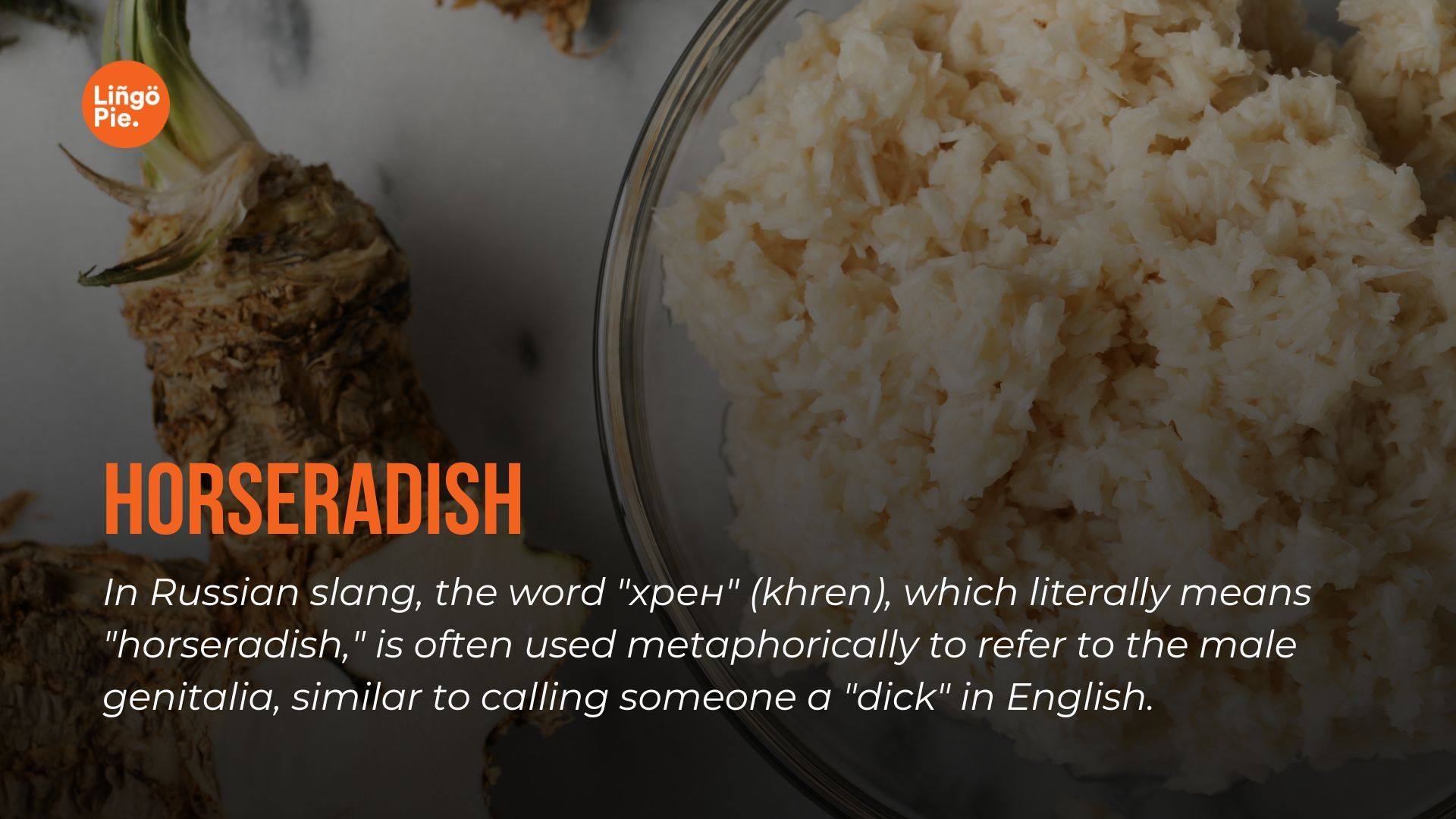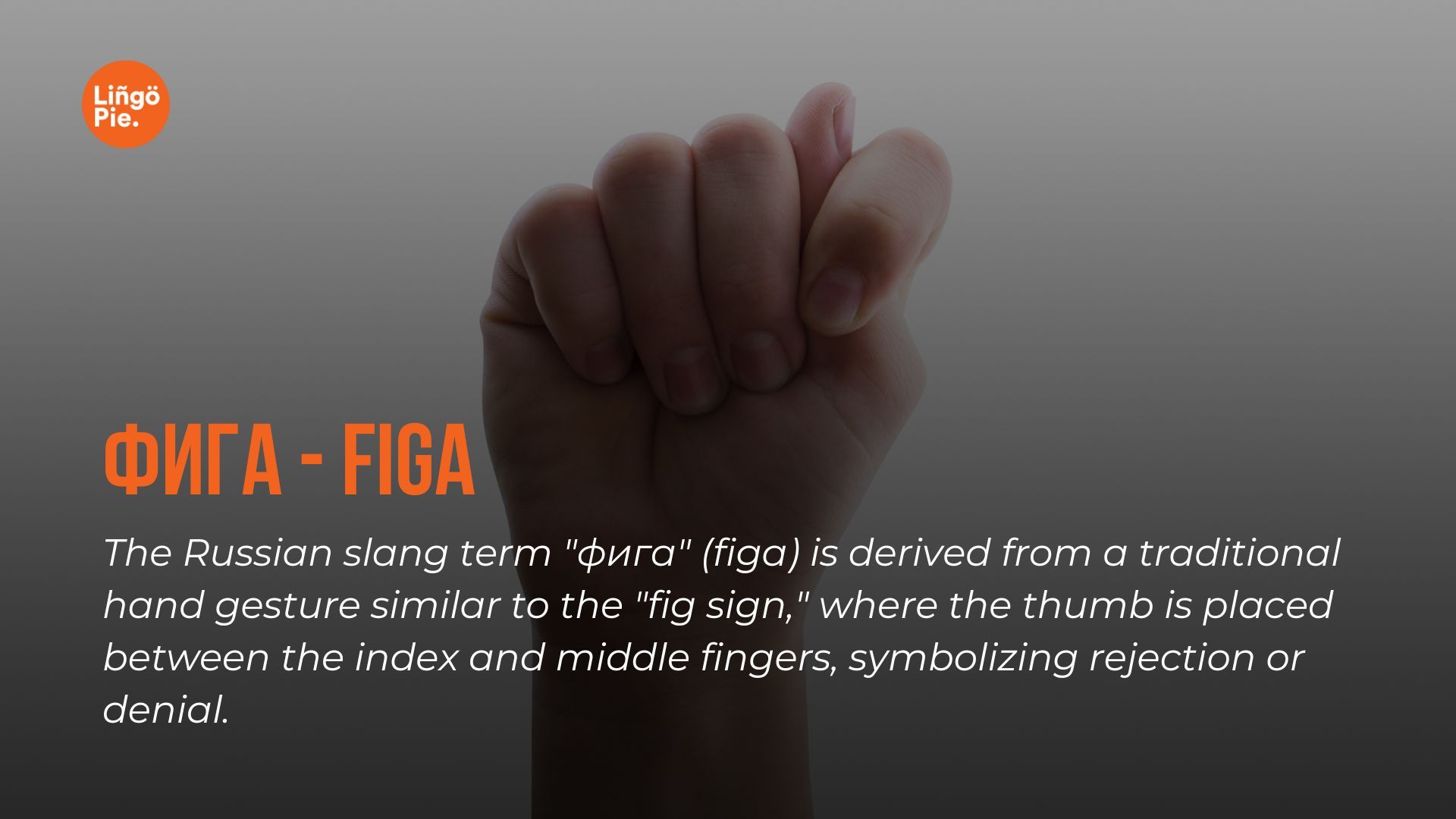Russian slang, also known as арго (arga) in Russian, refers to the informal language used by Russians in everyday conversations. It’s a way to express yourself in a more relaxed and casual manner, using common words that are popular in everyday conversations, and it’s a crucial part of understanding Russian culture.
But, let’s be real, even the most common Russian slang words can be intimidating, especially for beginners. That’s why in this post, I’ll help you get started as I reveal some of the best slang terms that’ll help you appreciate the depth and flavor of the Russian language.

How To Learn Russian Slang Words
Learning Russian slang words can be a fun and rewarding experience, especially for those who want to improve their language skills and connect with native speakers. Incorporating slang into your vocabulary is essential for every advanced Russian learner to sound more natural and relatable.
Here are some options to help you learn Russian by yourself:
- Watch Russian movies and TV shows with Lingopie: This is the best way to learn Russian slang words, as you’ll be exposed to common phrases and expressions used in everyday conversations. Lingopie offers a vast library of Russian movies and TV shows with English subtitles, making it easy to follow along and learn new words.
- Use online resources: There are many online resources available that can help you learn Russian slang words, such as language learning apps, websites, music videos, podcasts, and social media platforms. You can also search for Russian slang words on YouTube and other video-sharing platforms.
- Practice with a language exchange partner or a tutor: Finding a language exchange partner or a tutor who is a native Russian speaker can be a great way to practice your language skills and learn new slang words. You can use online platforms like Italki, Lingopie private tutors, or Conversation Exchange to find a language partner.
- Read Russian literature and comics: Reading Russian literature, Russian poems, and comics can be a great way to learn new slang words and phrases. You can find many Russian books and comics online or at your local library.
Russian Slang Greetings
When it comes to the Russian language, greetings are a crucial part of everyday conversations. In Russia, people use a variety of slang greetings to start their day, and they all depend on the relationship level between the speakers. Here are some common Russian slang greetings to get you started:
Здоро́во(Zda-ro-vah)
“Здоро́во” (Zda-ro-vah) is a common Russian slang informal greeting that literally means “good” or “well”. But, in Russian culture, it’s more like “hello” or “hi, how are you?” So, be prepared to respond with something like “хорошо” (horosho) meaning “good”.
доро́во (Da-ro-vah)
“доро́во” (Da-ro-vah) is another commonly heard Russian slang greeting that’s similar to “Здоро́во” (Zda-ro-vah). It’s also used to say “hello” or “hi, how are you?”, and it’s often used in informal settings and as a Russian internet slang.
Йо (Jo)
"Йо" (Jo) is a super casual Russian slang greeting that's often used with friends or people you're close to. It's like saying "hey" or "hi, what's up?", and it's a great way to start a conversation.
Как сам? (Kak-sam)
"Как сам?" (Kak-sam) is a common Russian slang greeting that literally means "how are you?" But, in Russian culture, it's more like "what's up?" or "how's it going?"
Как жизнь? (Kak-zheezn)
This is another common Russian slang greeting that literally means "how's life?" But, in Russian culture, it's more like "How's everything going?" or "What's new?"
Чё, как? (Chjo, kak)
"Чё, как?" (Chjo, kak) is a super casual Russian slang greeting that's often used with friends or young people you're close to. It's like saying "what's up?" or "how's it going?", and is pretty versatile for all ocassions.
Прив (priv)
"Прив" (priv) is a super casual Russian slang greeting that's often used with friends or people you're close to. It's like saying "hi" or "hey" in English. Just remember to respond with something like "Прив" (priv) back, and you're good to go!

The Russian Slang "Horseradish" (Хрен)
The Russian word хрен (khren), which literally means "horseradish," has evolved into a versatile slang term with multiple uses and derivatives. Here's a breakdown of its various slang uses:
- Хреново (Khrenovo): means "bad," "terrible," or "crappy" and is used to describe situations or performances negatively.
- Хреновый (Khrenoviy): means "lousy" or "crappy" and is used to describe objects or situations of poor quality or undesirable nature.
- Хреновина (Khrenovina): refers to an unspecified object, similar to "thing" or "whatchamacallit" in English, and is often used when one can't remember or doesn't know the proper name for something.
- Хренотень (Khrenoten'): another noun for "thingy," slightly more informal than хреновина, used in similar contexts when referring to undefined objects.
- Охренеть (Okhrenet'): an exclamation expressing extreme surprise or disbelief, similar to "What the hell!" or "Holy s***!" in English, and is considered rather crude and should be used cautiously.
Want to learn more about this Russian slang? Be sure to check out the scenes from some of the best Russian movies on Netflix where this term was mentioned!
Positive Russian Slang Words
When it comes to Russian slang, there's more to it than just learning new words and phrases. Russian slang is a way to connect with the culture, to understand the people, and to express yourself in a unique and authentic way. And, let's be real, who doesn't want to learn some positive and uplifting words to brighten up their day?
In this section, we'll explore some of the most positive and uplifting Russian slang words that will help you start your day on the right foot. From words that mean "good" and "great" to words that mean "cool" and "awesome", we'll cover it all.
Класс! (Klass)
This word means "cool" or "awesome" in Russian slang. It's borrowed directly from the English word "class" but used differently. Russians use it to express approval or admiration for almost anything, making it a versatile and popular slang term.
Крутой (Krutoy)
In slang, крутой means "rad" or "cool". This is an evolution from its original meaning of "steep". The shift from a physical attribute to a positive quality is a common pattern in slang development across many languages.
Кайф (Kayf)
Here's a surprise - this common Russian slang word comes from an Arabic word meaning pleasure. It's used both as a noun to describe a pleasant state and as an exclamation to express satisfaction.
Бомба (Bomba)
In slang usage, бомба means "great" or "amazing". While it literally translates to "bomb", Russians use it positively, similar to the English phrase "that's the bomb". This demonstrates how words with typically negative connotations can take on positive meanings in slang.
Офигеть (Ofiget)
This verb expresses strong surprise or disbelief, similar to "wow" or "I can't believe it!" in English. It's derived from a more vulgar root but is considered milder and more acceptable in casual speech. The word showcases how Russian uses prefixes and suffixes to modify meaning and intensity.
Кайфовать (Kayfovat')
Кайфовать means "to enjoy oneself" or "to have a great time". It's the verb form of кайф, showing how Russian creates verbs from nouns. The popularity of this word reflects the cultural importance of the concept of enjoyment or pleasure in Russian society.
Здорово (Zdorovo)
Здорово has two meanings depending on stress: its literal definition can be “great” (stress on the first syllable) or a casual greeting (stress on the second syllable). This dual nature highlights the importance of stress in Russian pronunciation. It’s a common source of confusion for Russian language learners, as the meaning changes dramatically with stress placement.

The Russian Slang "Фига" (Figa)
The Russian slang term “фига” (figa) is a versatile and iconic gesture that has evolved into a variety of slang expressions. The gesture is recognized and understood not only in Russia but also in other Slavic countries such as Ukraine and Belarus. To make the фига, simply put your hand in a fist and stick your thumb out between your index and middle finger.
Here are some of the Russian slang words derived from figa:
- Фига (figa) - This general term is used to express frustration, annoyance, or disappointment. It’s a milder alternative to more vulgar expressions and can be used in various situations to convey negative emotions or reactions.
- Фигачить (figachit’) - This verb means “to do something badly or clumsily.” It often implies a lack of skill or care in performing an action. For example, “Он фигачит работу” could mean “He’s doing a sloppy job.”
- Фигач (figach) - As a noun, фигач means “a mess” or “a disaster.” It’s used to describe situations that have gone wrong or are in a state of chaos. For instance, “На кухне полный фигач” would translate to “The kitchen is a complete disaster.”
- Фига-ля (figa-lya) - This expression is used to emphasize a point or show enthusiasm. It’s similar to saying “ta-da!” or “voila!” in English, often accompanying a reveal or a dramatic statement.
Common Russian Slang Words For People
Just like English, Russian has numerous colloquial terms for describing different types of people. These range from friendly and neutral to potentially offensive. Here's a guide to some common Russian slang terms for people:
Черт (Chyort)
This word literally means "devil" in Russian. In slang usage, it's often used as a mild expletive or to refer to someone in a negative way. It can express frustration or annoyance, similar to saying "damn" or "hell" in English.
Малыш (Malysh)
Малыш translates to "kid" or "little one". While it literally means a young child, it's often used affectionately for people of various ages. In slang, it can refer to a girlfriend or boyfriend in a cutesy manner.
Братан (Bratan)
This word means "brother" or "bro" in Russian slang. It's a friendly, informal term used between male friends or acquaintances. The term comes from the word брат (brat), meaning brother, with the added suffix for emphasis.
Ботаник (Botanik)
Ботаник literally means "botanist" but is used in slang to mean "nerd" or "geek". This term illustrates how academic pursuits are sometimes stereotyped in popular culture. It can be derogatory or affectionate depending on context.
Чувак (Chuvak)
This word means "dude" or "guy" in Russian slang. It's a casual, generic term for an unspecified male, similar to its English counterpart. The word is believed to have Romani origins and entered Russian slang in the mid-20th century.
Чувиха (Chuvikha)
This term means "girl", "chick", or "young woman". It's the feminine counterpart to чувак. Like чика, it's casual and can be seen as disrespectful in formal settings or by some individuals.
Чика (Chika)
Чика is a slang term for "girl" or "young woman". It's derived from the Spanish word "chica" and entered Russian through criminal jargon. While commonly used, it can be considered somewhat disrespectful in certain contexts.
Мусор (Musor)
This term is a derogatory slang for a police officer. Literally meaning "garbage" or "trash", it's highly offensive and should be avoided. Its usage reflects historical tensions between civilians and law enforcement in Russia.
Офисный планктон (Ofisny plankton)
This phrase translates to "office plankton" and is a derogatory term for office workers. It implies that these workers are numerous, insignificant, and drift aimlessly like plankton. This term reflects certain societal attitudes towards corporate jobs.
Russian Internet Slang Words
The Russian Internet, known as RuNet, has developed its own unique culture complete with contemporary slang terms. Here are some key examples:
Котэ (Kote) - Internet Cats
So, you know how the internet is obsessed with cats? Russians have a special word just for online felines - котэ. It's like saying "internet kitty" instead of just "cat." Cute, right?
Тролль (Troll') - Trolls
Just like in English, Russians use the term 'internet troll' for those annoying people who stir up trouble online. If someone’s being a pain in the comments, they might get called a тролль.
Ламповый (Lampovyy) - Cozy Vibes
Here's a cool one! Ламповый literally means "with a lamp," but online it's all about that warm, cozy feeling. If something's ламповый, it's mellow, heartfelt, or sincere. Like a chill evening with friends or a sweet, nostalgic movie. You might see someone say, "Какой ламповый вечер!" meaning "What a cozy evening!"
Фейспалм (Facepalm) - Facepalm
Just like in English, it's used when someone does something so dumb or embarrassing that all you can do is put your face in your hand. You might see it as a comment on a cringeworthy post or used to describe a situation, like "Это был такой фейспалм!" ("That was such a facepalm moment!")
Keep Your Russian Fresh and Fun
We've taken a fun ride through the world of Russian internet slang, but remember, this is just the tip of the iceberg. Russian, like any living language, is always changing, especially when it comes to slang and colloquial expressions.
Want to stay on top of your Russian game? There's no better way than diving into real-world practice. That's where Lingopie's features come in handy!
With Lingopie, you can immerse yourself in authentic Russian content, from TV shows to movies, helping you pick up the latest slang and expressions as they're actually used by native speakers.
Remember, the key to mastering any language is consistent exposure and practice. So keep at it, and don't be afraid to use those new slang terms you've learned!
Until next time, keep exploring the exciting world of the Russian language. And as they say in Russia, Удачи из удач! (Best of luck!)







![Russian Alphabet: Everything You Need to Know [2025]](/blog/content/images/size/w300/2025/04/Russian-alphabet-.jpg)

